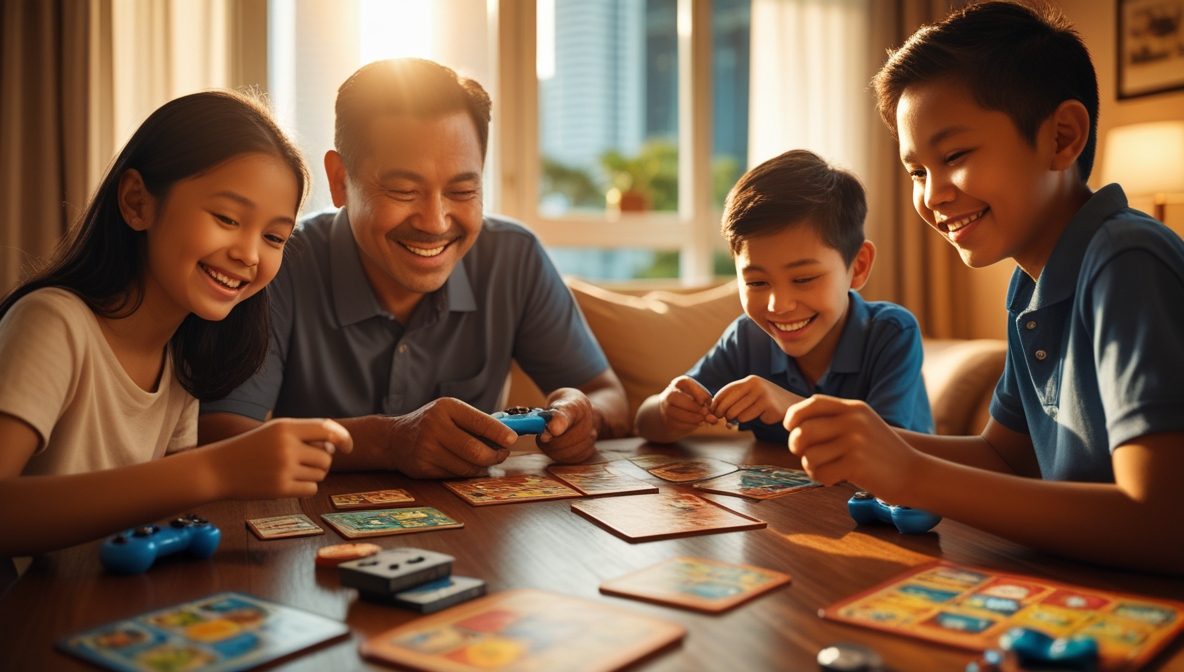Families looking to spend meaningful time together often turn to games. Whether it’s classic board games, strategy-based digital games, or simple logic puzzles, each option offers a way to strengthen bonds, sharpen minds, and create lasting memories. Some games encourage teamwork, others foster friendly competition, and a few challenge players to think ahead and make strategic moves.
Classic Board Games: Time-Tested for a Reason
Board games have been a family staple for generations. They bring people together, encourage communication, and teach valuable skills. Some are quick and easy, while others demand patience and strategic planning.
Tic Tac Toe: A Simple Yet Effective Logic Builder
Tic Tac Toe may seem like a children’s game, but its simplicity hides its true value. It sharpens critical thinking, pattern recognition, and foresight. Young children learn to plan ahead, while adults can still enjoy the challenge of outmaneuvering their opponent. Since it requires only paper and a pencil, it’s an easy choice for on-the-go entertainment.
Chess: A Game of Strategy and Patience
Few games match chess in depth and strategic complexity. Every move counts, and players must anticipate their opponent’s response several turns ahead. The use of a chess clock introduces an additional layer of challenge, requiring not just careful planning but also time management. Learning chess develops problem-solving skills, patience, and resilience. Families who play regularly often see younger players improve their ability to focus and think critically.
Scrabble: Expanding Vocabulary Through Play
Scrabble turns word-building into a challenge. Players use their tiles to construct words while maximizing their points. Strategy comes into play when placing words in high-scoring positions. This game improves vocabulary, spelling, and creative thinking, making it both fun and educational.
Monopoly: Lessons in Money and Negotiation
Monopoly teaches financial skills in an engaging way. Players manage property investments, negotiate deals, and attempt to outlast their opponents financially. It encourages strategic thinking, decision-making, and patience.
Digital Strategy Games: Sharpening the Mind
While screen-free games offer hands-on interaction, digital games provide their own unique advantages. They challenge the brain with puzzles, problem-solving tasks, and fast-paced decision-making. Some digital games focus on numerical strategy, while others require players to balance speed with long-term planning.
2048 Game: A Fun and Addictive Brain Exercise
The 2048 game is a simple yet compelling puzzle that requires players to slide numbered tiles, combining them to reach the elusive 2048 tile. While it may seem easy at first, long-term success demands strategic thinking and careful moves. It’s a fantastic way to improve logical reasoning and pattern recognition without requiring a lengthy time commitment.
Sudoku: Number Puzzles That Boost Logical Thinking
Sudoku has long been a favorite for players who enjoy number-based challenges. The goal is to fill a 9×9 grid so that each row, column, and section contains every digit from 1 to 9. It strengthens logic skills and concentration while keeping the mind engaged. Since there are digital versions available, it’s a great alternative for those who prefer playing on a device.
Settlers of Catan: A Game of Strategy and Resource Management
Catan combines luck, negotiation, and resource management. Players compete to build settlements and cities while trading resources to gain an advantage. The dynamic nature of the game means no two rounds play out the same way. Digital adaptations offer an option for remote play when family members aren’t in the same location.
Balancing Screen-Free and Digital Play
Both classic and digital games have their place in family bonding. While board games create face-to-face interaction, digital games can provide stimulating challenges without the need for setup. Here are some ways to blend both:
- Rotate game nights: Alternate between board games and digital strategy games.
- Introduce a chess clock: Whether playing traditional chess or digital strategy games, time constraints can add excitement.
- Play together: Games like the 2048 game can be a fun group activity, with players taking turns or strategizing together.
- Use digital tools to enhance board games: Some board games have companion apps that track scores or add interactive elements.
Final Thoughts
Family game time, whether spent with a board, screen, or paper, creates moments of connection. The key is to choose games that fit the group’s interests while keeping the experience enjoyable for everyone. Whether it’s the simplicity of tic tac toe, the complexity of chess, or the engaging challenge of the 2048 game, there’s always a way to make playtime meaningful.



